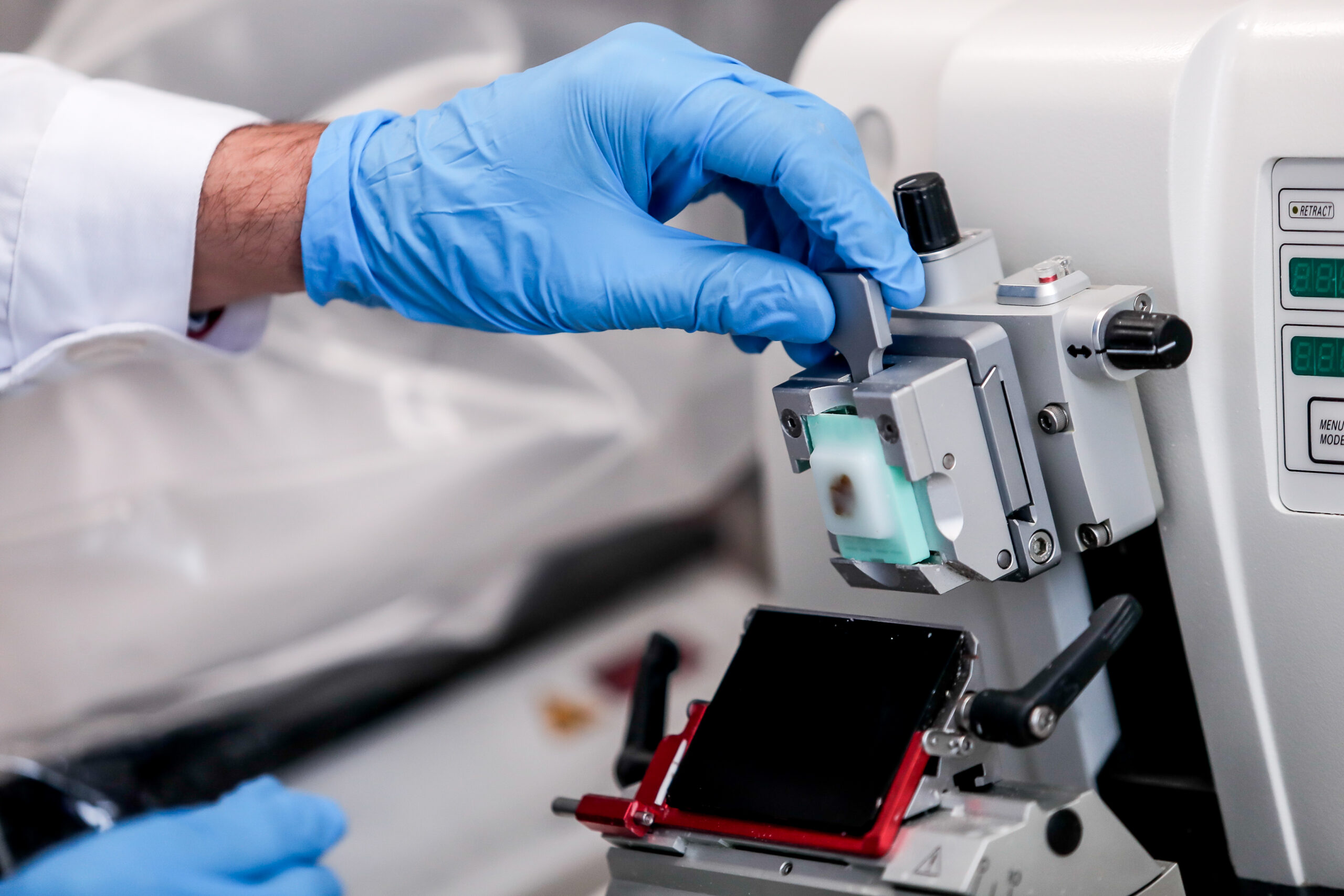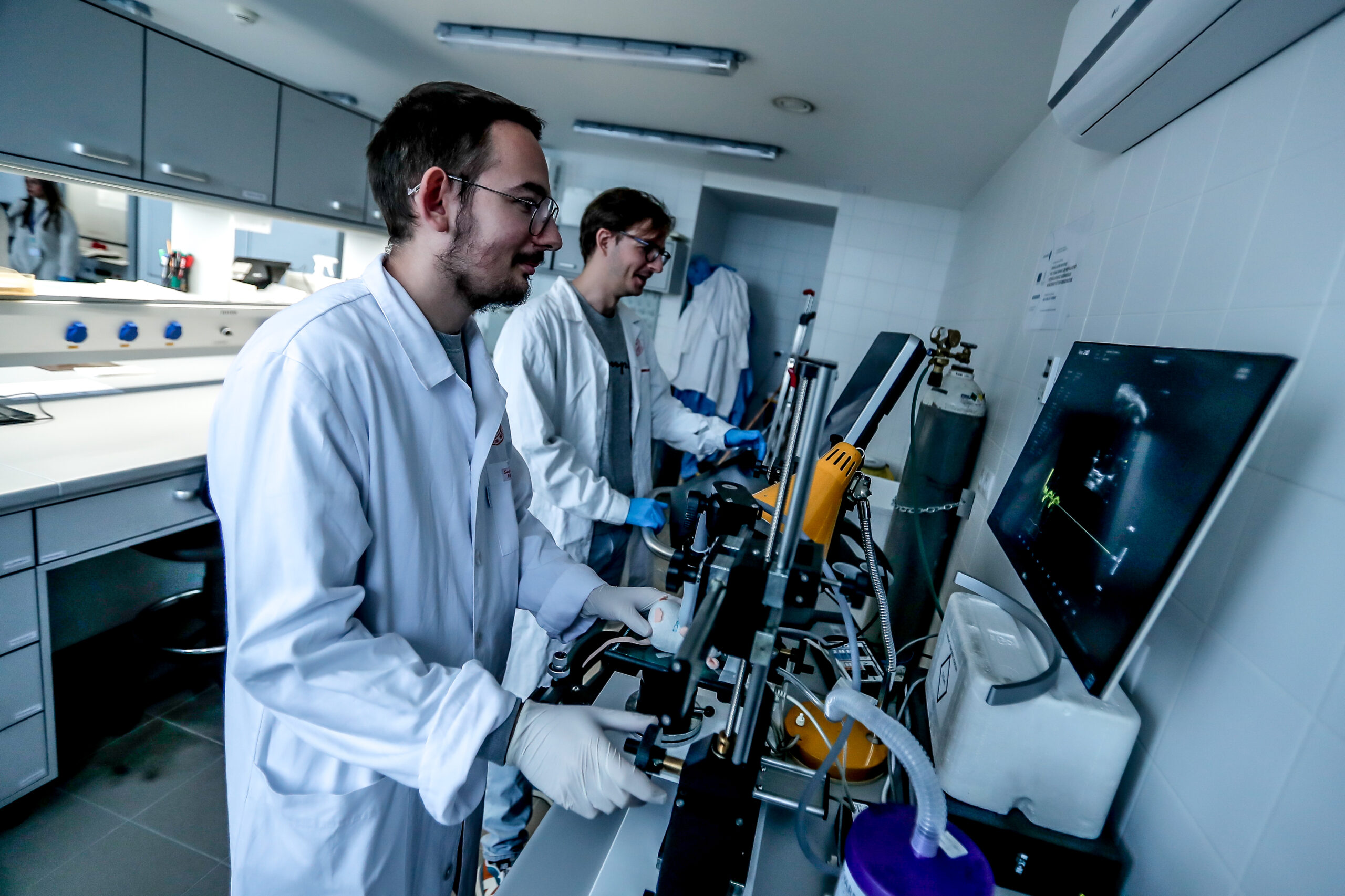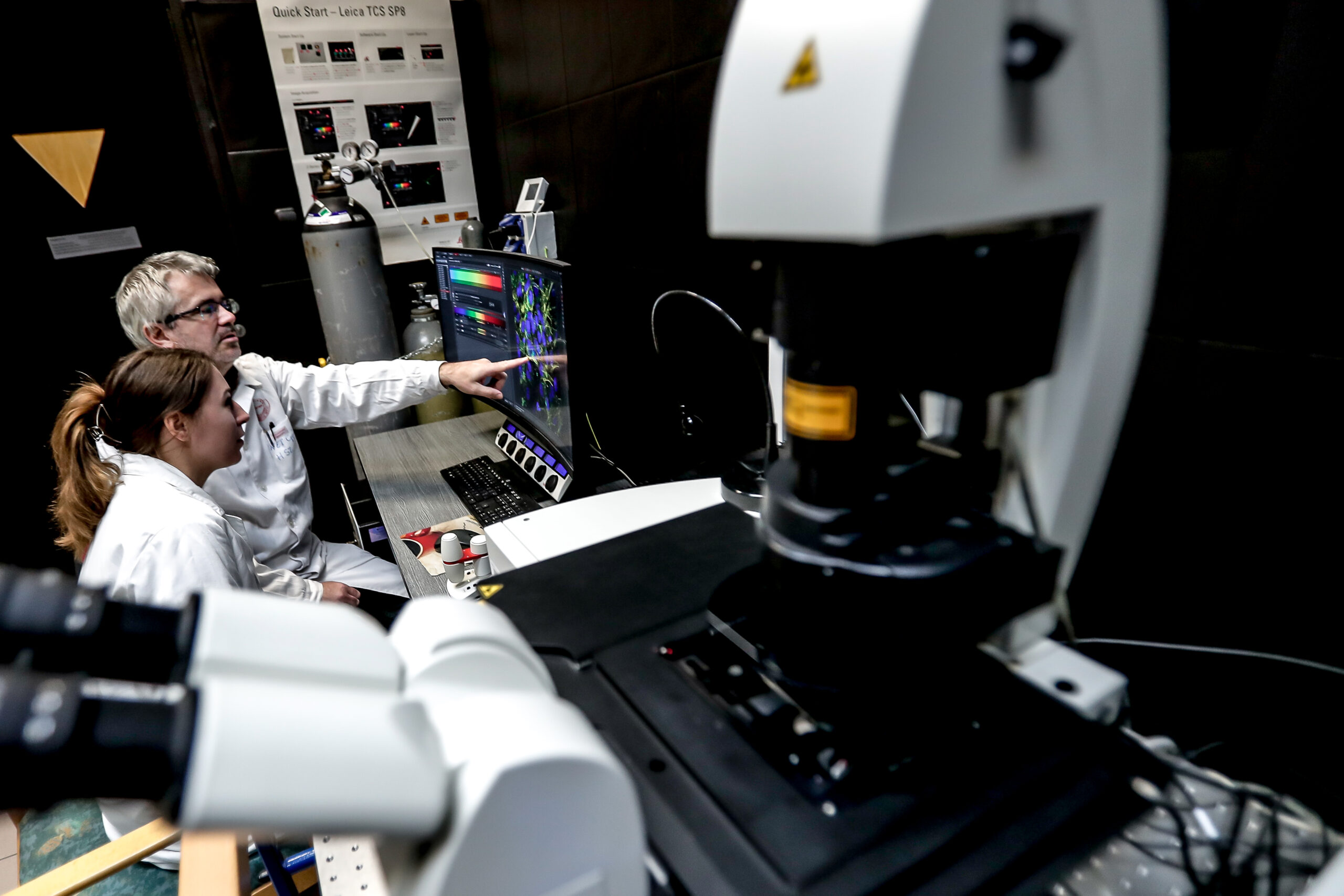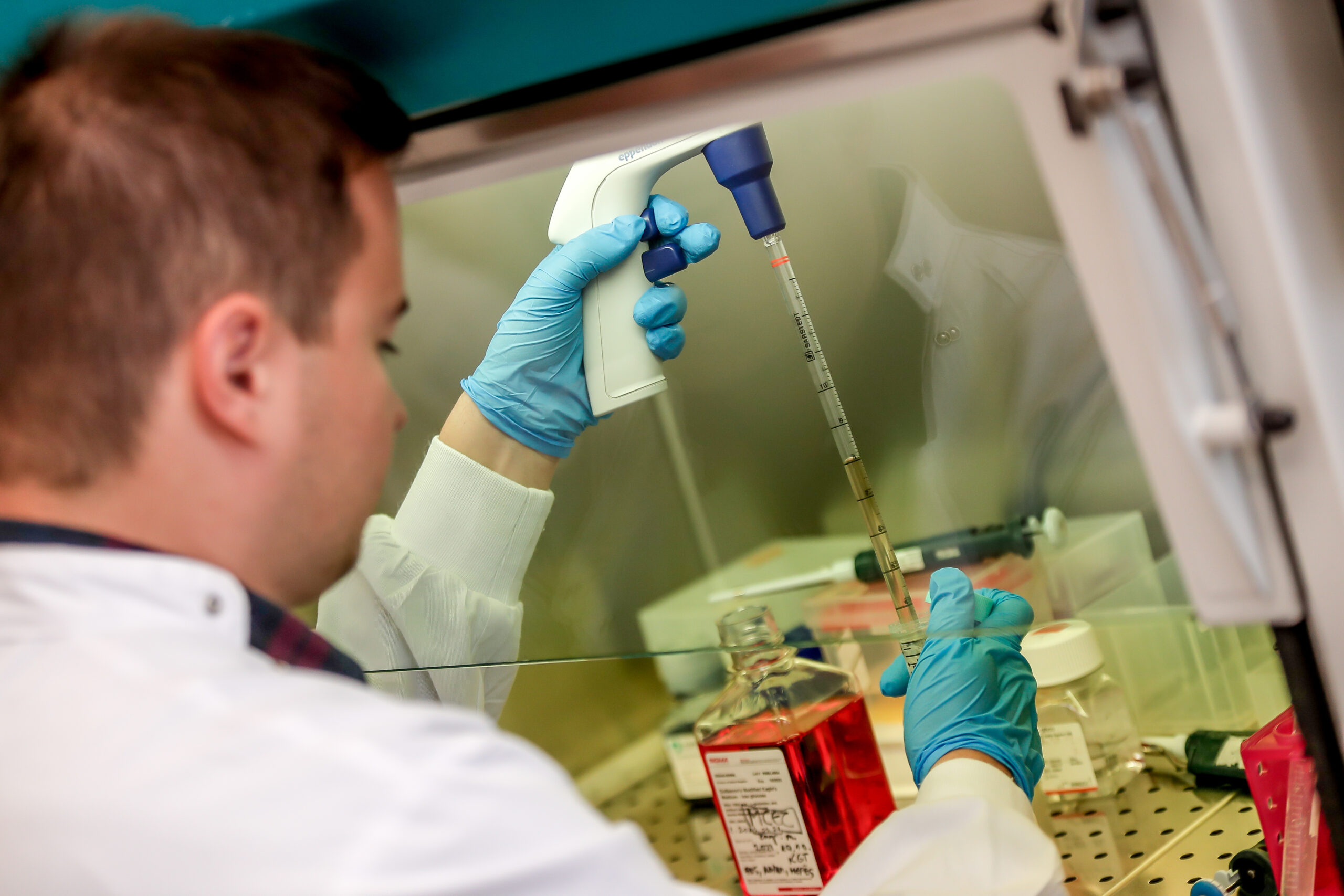| Grant: | OTKA-FK_VZ_2020 |
| Amount of support: | 40.000.000 HUF |
| Duration: | 2020. 11. 01. – 2025. 11. 30. |
| Principal investigator: | Varga Zoltán, MD, PhD |
Summary
Heart failure is one of the leading causes of death worldwide, and its prognosis is poor despite advances in modern therapies. As the disease progresses, the body attempts to compensate for declining cardiac function through various mechanisms. However, these compensatory mechanisms lead to cardiac exhaustion over time, contributing to further deterioration of heart function. The aim of our research is to gain a deeper understanding of the underlying mechanisms of heart failure and to identify new therapeutic targets. We focus particularly on the role of the adrenal gland and how two major compensatory pathways—enhanced hormone production and inflammation—interact to influence cardiac function. In previous animal studies, we observed a surprisingly high number of macrophage-like inflammatory cells in the adrenal gland, along with significantly elevated expression of key inflammatory genes. These findings suggest that local inflammation may enhance adrenal hormone production, which in turn could exacerbate heart failure. Mapping these complex interactions may lead to the identification of novel therapeutic targets, ultimately improving patient outcomes.
Participating leading researchers, collaboration partners, universities, companies
Our research is conducted at the Department of Pharmacology and Pharmacotherapy, Semmelweis University. The project is led by Zoltán Varga, MD, PhD, with Péter Ferdinandy, MD, PhD, DSc, MBA as scientific advisor. In vivo experiments are coordinated by Zsófia Gulyás-Onódi, MD, PhD, Viktória Tóth, MD, PhD and Zsombor Hegedűs, while the in vitro studies are carried out by Viktor Nabil Sayour, MD, Gábor Mórotz, PhD and Andrea Kovács.
Applied methods and tools
Our laboratory is exceptionally well-equipped, with a wide range of instruments necessary for conducting molecular and cell biology experiments, such as qRT-PCR, Western blot, flow cytometry, histological techniques, and cell culture methods. In addition, we have access to a fully equipped animal facility that enables the implementation of in vivo experiments.
Pictures
Mission and benefits
Our research helps to clarify how myocardial and hormonal dysfunctions contribute to the development and progression of heart failure. This knowledge may also support the development of new treatment options. Our research directly contributes to the strategic goals of the university, as our innovative work strengthens the institution’s international reputation and is published in prestigious journals.



